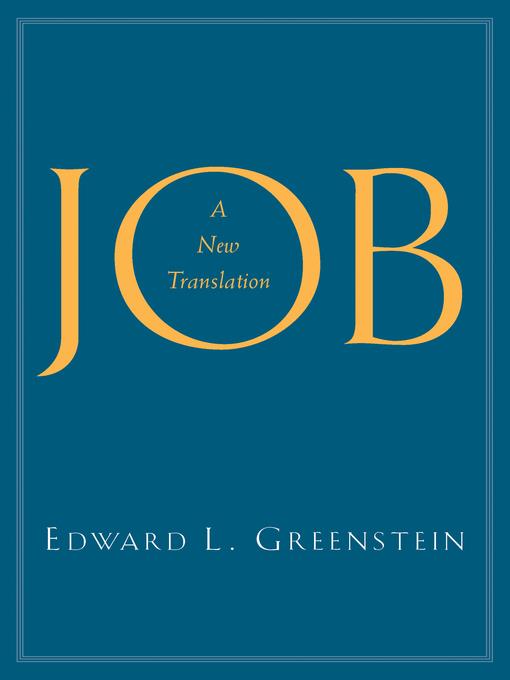
Job
A New Translation
- اطلاعات
- نقد و بررسی
- دیدگاه کاربران
نقد و بررسی

Starred review from July 8, 2019
Greenstein (Essays on Biblical Method and Translation), a bible professor at Bar-Ilan University who has spent decades studying the Book of Job, shares the fruits of his labors in this excellent, accessible translation that supports his new interpretation of the famous text. Rather than portraying Job as an exemplar of patient suffering in the face of injustice, Greenstein believes this section of the Bible is “more subversive” than it’s widely believed to be. His take is that Job, to the very end, challenges God over the suffering of innocents and expresses “disdain towards the deity,” not acquiescence to a higher and unknowable power. For Greenstein, the theme of the book of Job is “the importance of proper speech—honesty in general and truth in God-talk in particular.” While some will debate some of his interpretations and translations (for example, whether Job stated at the end that he was “fed up” rather than “I abhor myself,” which is found in the King James Version), others will find the proposed new meaning stimulating. A helpful introduction lays out the basis for Greenstein’s approach, including his method of translation, and his view of the historical context of its authorship. For both scholars and general readers of the Bible, Greenstein’s novel interpretation of Job’s significance and keen analysis of the Bible’s own discussion of theodicy will be eye-opening.

August 1, 2019
Translating Job is a difficult affair. The current state of the text shows various additions, deletions, and transpositions. To complicate matters, the Hebrew also contains a number of words found nowhere else in the Bible or terms that are used in idiosyncratic ways. In this poetic indictment of power, Greenstein (emeritus, Bible, Bar-Ilan Univ.; Essays on Biblical Method and Translation) portrays the deity as an ancient despot unconcerned with the lot of humanity. Unlike most translations, this Job defiantly concedes nothing to the Almighty. Greenstein's Job is more reconstruction than simple translation. Splitting the difference between scholarly rigor and general accessibility, the author provides a good feel for the Hebrew rather than a dynamic equivalence into English. Extensive notes, while not overwhelming the text, provide ample justifications for various decisions. These include citing previous mistranslations, transmission errors, and some major reshuffling. For instance, Job 4:12-21 is typically seen as part of Eliphaz's first discourse. But Greenstein moves it to the conclusion of Job's opening discourse. Along with the introduction, these notes are vital to understanding the text. VERDICT This translation is a distilled magnum opus that should serve as an exemplar of a neglected school of thought in interpreting Job.--James Wetherbee, Wingate Univ. Libs., NC
Copyright 2019 Library Journal, LLC Used with permission.




دیدگاه کاربران